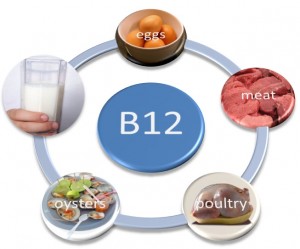 Doctors involved in medical examinations of the resettled Bhutanese in America have revealed that up to 60 percent are deficient in vitamin B12.
Doctors involved in medical examinations of the resettled Bhutanese in America have revealed that up to 60 percent are deficient in vitamin B12.
Routine medical examinations of refugees after arrival in resettlement states indicated hematologic and neurologic disorders caused by vitamin B12 deficiency, according to the Centers for Disease Control and Prevention.
Vitamin B12 deficiency, defined as serum vitamin B12 concentration was found in 64% (63 of 99) of overseas specimens, 27% (17 of 64) of post-arrival medical screenings, and 32% (19 of 60) of Bhutanese refugees screened for vitamin B12 deficiency at the St. Paul clinic, according to the finding.
Although the deficiencies might be multifactorial, the main cause is thought to be the diet consumed by these refugees for nearly two decades in Nepal, which lacked meat, eggs, and dairy products, the major dietary sources of vitamin B12.
Meanwhile, a newspaper report from Utah stated that resettled Bhutanese are consistently complaining of numbness and tingling in their legs, doctors knew something was wrong. The elderly, people in their 20s and even the occasional teenager had the same symptoms.
“The majority of them will eat more meat and it won’t be a long-term issue,” the report quoted Paul Swoboda, a doctor at the clinic as saying. “People with more long-standing problems — a lot of the damage is permanent.”
Rarely seen in the U.S. except among older adults, B12 deficiency also has been tied to memory loss, anxiety, depression, anemia and problems with children’s development.
Refugees are not the only group at risk. According to the CDC, the deficiency is believed to be more commonly seen in the Bhutanese due to their heavily vegetarian diet, added the report.
“According to the CDC, 1 out of 31 adults over 50 is deficient in B12. The aging body is not able to absorb B12 as efficiently. Overall, less than 1 percent of the U.S. population is deficient.”
